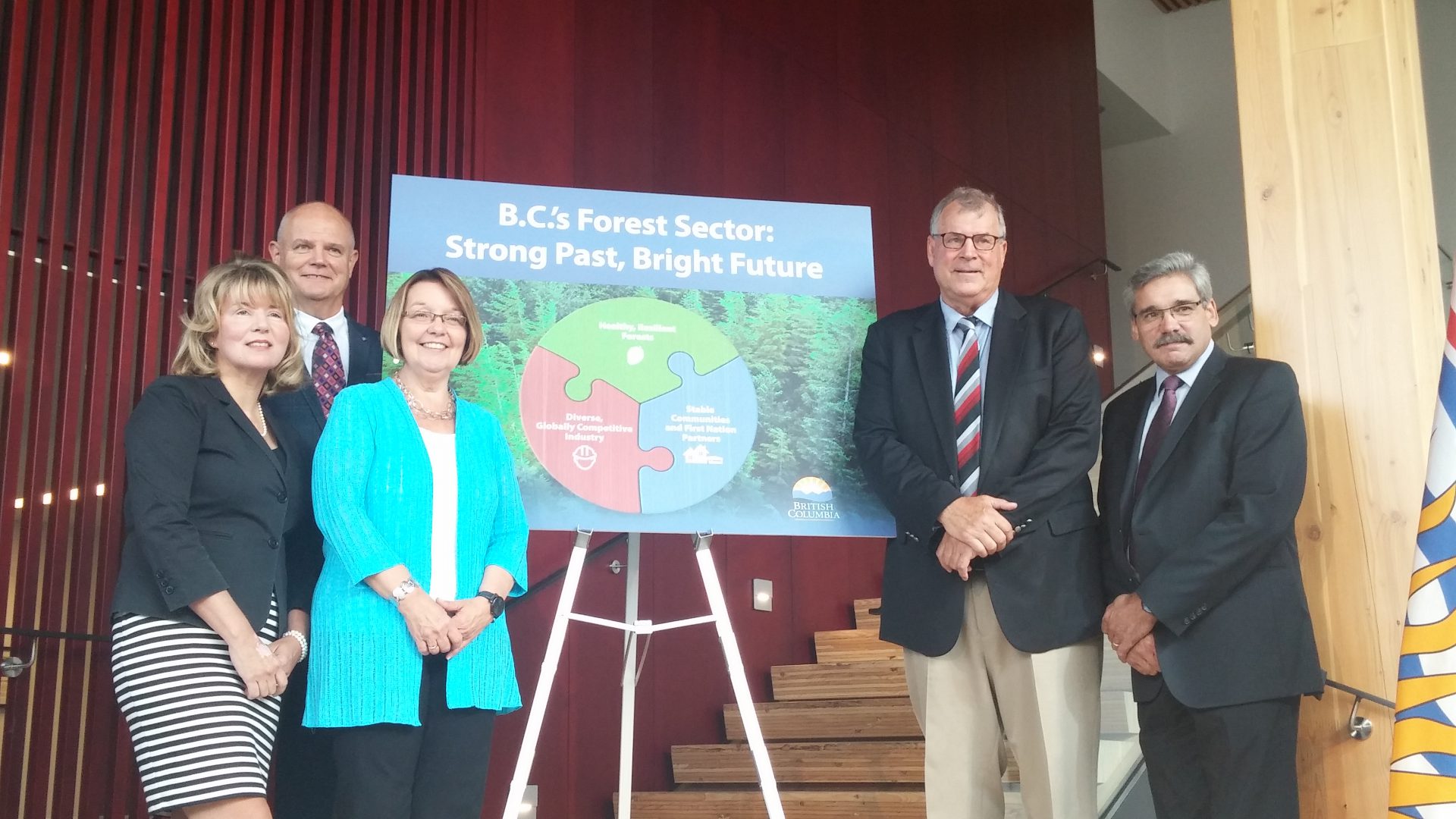The BC government says it’s taking action to protect the province’s forestry industry with “Strong Past, Bright Future” – a multi-phased agenda to enhance and diversify the industry.
It contains 49 items, including develop innovative new wood and wood fibre products, forest enhancement and management programs and investments in the timber supply through reforestation.
The industry is facing a number of challenges at the moment, including rising costs for harvesting and transportation and an upcoming reduction in the allowable wood cut.
“The reality is we are facing lower annual allowable cuts in many parts of the province as a result of the mountain pine beetle epidemic,” says Minister of Forests Steve Thomson. “We’ve had the uplift – we’re now through that process and those adjustments have to be made to ensure that we have a sustainable level of harvest in the future.”
Minister of Jobs Shirley Bond says the province is taking action now to ease the transition to a “new landscape” for the industry.
“There is going to be some transition in communities as we face the changes on the land base. Innovation is a critical part of this agenda, making sure that we’re not looking back at the forestry industry that was but looking at what it is and what is can be for the future.”
Bond says increased emphasis on managing forest ecosystems to allow for harvesting but also preservation and ecotourism opportunities will help strengthen the industry.
The multiphase agenda focuses on three related goals – healthy, resilient forests, diverse, globally competitive industry and stable communities and First Nations.
“It’s about how the forest industry continues to contribute to the economy. Also, strong partnership with First Nations and with industry. Government can’t dictate how this is going to work – we need to lay out the agenda and work with industry and with First Nations to make sure we can be successful.”
The softwood lumber dispute with the US is also looming. Thomson says the government is still hoping for an agreement but is preparing for trade action from the States as early as October.
“We’ll defend the industry against those actions. We’ve said very clearly that the new managed agreement needs to be one that works for British Columbia and works for Canada. It’s not an agreement at any costs as far as we’re concerned. We’ll defend our policies and our practices.”
The US remains the largest export market for Canadian lumber.
There’s no underestimating the importance of forestry to BC’s economy. It accounts for 35% of the province’s export market, according to the Council of Forest Industries.
Two thirds of the province’s land base – a total of 55 million hectares – is forested and the industry supported 65,500 jobs last year.
Something going on in the Prince George area you think people should know about?
Send us a news tip by emailing [email protected].







